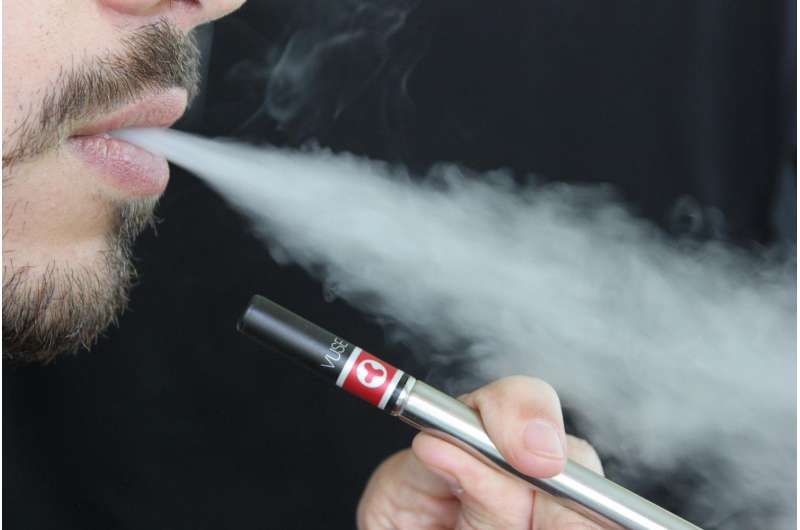Researchers find e-cigarette flavors linked to use in youth and young adults

Flavored e-cigarettes and e-cigarette marketing could be increasing e-cigarette use among youth and young adults, according to researchers from the Michael & Susan Dell Center for Healthy Living at The University of Texas Health Science Center at Houston (UTHealth) School of Public Health in Austin. These findings are part of a series of papers by UTHealth researchers that were published today in the journal Tobacco Regulatory Science.
In one of the studies, researchers found that for those who had used any tobacco product in the past 30 days, flavored tobacco use, including flavored e-cigarette use, was high for youth and young adults in Texas. The findings are based on data from 2,483 youth ages 12 to 17 and 4,326 young adults ages 18 to 29 in four metropolitan across Texas: Houston, Dallas/Fort Worth, San Antonio and Austin.
"Our study supports a growing body of evidence that suggests the use of flavors in tobacco products, like e-cigarettes, are appealing to youth and young adults," said Melissa B. Harrell, Ph.D., M.P.H., associate professor in the Department of Epidemiology, Human Genetics and Environmental Sciences at UTHealth School of Public Health in Austin. "What is most surprising is that before this, no one has yet asked young people, 'if flavors were removed from these products, would you continue to use them?' "
Among those who reported currently using e-cigarettes, 98.6 percent of youth and 95.2 percent of young adults in Texas said that their first e-cigarette was flavored. If flavors were not available, 77.8 percent of adolescents and 73.5 percent of young adults who used e-cigarettes said they would not use them. It is estimated that there are more than 7,500 flavors of e-cigarettes available on the market. Many of these are sweet flavors and taste like fruit or dessert."Taste is an important factor," said Harrell, who serves as lead researcher for one of the studies. "These flavors mask the flavor of tobacco, which can have a harsh taste."
In a second study, researchers observed that advertising could have a significant role in the uptake of e-cigarettes among youth.
From 2011 to 2013, e-cigarette advertisements on TV increased by more than 250 percent and reached more than 24 million adolescents, researchers reported. In 2014, 70 percent of middle and high school students in the United States had seen an e-cigarette advertisement on TV, in a retail store, on the internet, or in newspapers and magazines. This second study, the first longitudinal study of its kind, shows that Texas youth who see an e-cigarette advertisement in a retail store or on the internet are more likely to start using e-cigarettes or be susceptible to them in the future. In 2015, nearly 3 million middle and high school students nationwide were e-cigarette users, according to data from the National Youth Tobacco Survey. Analysts predict that e-cigarette sales will exceed $10 billion this year nationwide.
Though e-cigarettes are typically marketed as a harmless alternative to traditional cigarettes, previous research has shown they are not free from harmful chemicals. Chemicals and carcinogens, like acetaldehyde, formaldehyde and tobacco-specific nitrosamines, which are common in cigarettes, have been found in e-cigarettes. It is unknown whether adults are able to quit cigarette smoking successfully by using e-cigarettes. The data used for the studies was collected by the Tobacco Center of Regulatory Science on Youth and Young Adults (Texas TCORS), a center created by several of The University of Texas System institutions to develop research that can guide future decisions on tobacco regulations at the national level.




















